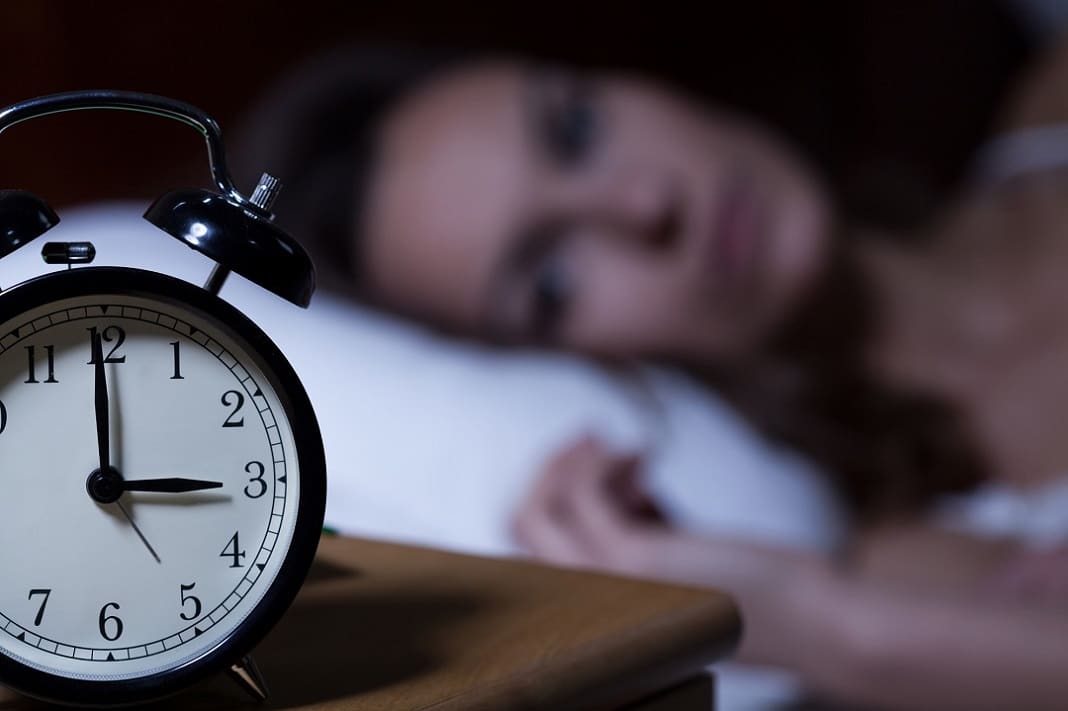If you’ve spent a restless night–or several–pacing the floor, counting herds of sheep, reading the most boring book you can find, trying anything to drift off to sleep, you may have wondered what causes your insomnia and what you can do to end the suffering. You’re not alone. As many as 20% of Americans suffer from this mysterious sleep disorder that impacts every aspect of your physical and mental health.
Those sleepless nights lead to exhausting days. Like many people with insomnia, your eyes may be closed when your head hits the pillow, but you never quite manage to drift away into sleep. Instead, you spend your nights wondering why YOU? Why are you struggling? Why can’t you fall asleep? Is there something else you can try or do because nothing you’ve done seems to work? Or is your insomnia a genetic trait passed down to you, something that you’ll just have to accept and learn to live with?
A 2018 study of the human genome has confirmed that insomnia is in fact at least partially genetic in nature. But that doesn’t mean there’s no cure for your chronic insomnia. While insomnia isn’t always easy to treat and resolve, several effective treatment options are available, and medical sleep specialists can help you to find a solution that is right for you.
You shouldn’t have to fear that you’ll always spend your nights fighting for sleep.
Insomnia can be treated.
There are generally two forms of insomnia: acute and chronic. Acute insomnia is triggered by a stressor in life (divorce, sick child, job deadlines, etc.). Chronic insomnia is generally when the stressor shifts to worry that you won’t be able to sleep when you go to bed and the worry itself becomes the cause of insomnia. With the proper tools, you’ll be able to manage acute insomnia before it turns into chronic insomnia. Your treatment for insomnia doesn’t change, regardless of whether you inherited a predisposition.
Here’s what you need to know about how your genes can affect insomnia, and what a genetic predisposition for insomnia may mean for you.
Is Insomnia Genetic? Yes and No
While genes have been associated with insomnia, several physiological and psychological factors can contribute to a person’s lack of sleep. For example, some people suffer from insomnia simply because they habitually drink caffeine or energy drinks before bed. It’s a habit they perform for so long that they may never realize that a simple lifestyle change–cutting back on caffeine–may be the “cure” for sleepless nights.
However, many others may develop insomnia as a result of their own biology, by inheriting a set of genes from their parents that predisposes them to insomnia. This can happen because their genes tell their brains to go into hyperdrive at nighttime, or sometimes their genes simply make it hard to enter REM sleep.
Even if the problem is genetic, insomnia is still something that can be treated, and the treatment is the same regardless of whether you have a genetic predisposition. Consulting with a sleep specialist about the treatment plan that is right for you can help you to manage your insomnia and get a good night’s rest.
Your Genes Aren’t the Same as Your Gene Expression
Most people think their genes define who they are. While it’s true that your genes provide the blueprint for what makes you a unique person, not every bit of that blueprint is expressed. A person’s behavior, psychology, and other things not directly affected by their biology are affected by their gene expression more than by the genes themselves.
Gene expression means that parts of a person’s genes are used more frequently than others. Genes are just instructions on how to produce certain proteins that make us function. Gene expression works like an “on/off” switch that tells a gene whether to make the building blocks that help us to function. For example, if a person runs a lot or lifts weights frequently, more cardio or strength proteins will be produced as the genes for these proteins are expressed. Gene expression allows organisms to adapt to their environments.
In other words, in order for someone with a genetic predisposition to insomnia to actually develop the sleep disorder, other environmental factors need to be present to “trigger” the on switch for the insomnia gene. And though family and twin studies show that insomnia is heritable, people who have suffered from insomnia in the past can go on to achieve normal sleep.
You Can Inherit a Higher-Risk for Insomnia, Not Insomnia Itself
Understanding gene expression helps us to appreciate why the genes that you inherit from your parents predict your risk of developing insomnia, not whether you will absolutely develop it or not. Your sleeping habits are governed by your gene expression, not your genes themselves. You can influence which genes are expressed and which aren’t through habits and certain behaviors.
That doesn’t mean that someone with a genetic predisposition for insomnia won’t suffer restless nights. If you’re predisposed for insomnia, you need to be more careful around bedtime. Looking at your phone or watching TV before bed may seem inconsequential for some people, but for you, those behaviors may trigger the genes that keep you up at night.
Insomnia Is Usually a Symptom of a Bigger Problem
It’s rare for someone to suffer from insomnia alone. Usually, it’s accompanied by other health problems. Insomnia is comorbid with other disorders, which means it exists simultaneously with other medical conditions, despite being classified as a disorder in its own right. Many times, it’s a symptom of an underlying chronic condition that needs to be treated either during or before treating insomnia. Even common viral infections like the flu can trigger acute insomnia, which is a brief episode of sleep difficulty. Other more serious illnesses and diseases contribute to chronic insomnia, and like insomnia itself, those disorders can be hereditary. Keep reading below to learn more about them.
Depression and Anxiety Usually Accompany Insomnia
Depression and anxiety are two of the leading mental disorders today. Almost 20 percent of the U.S. population has been diagnosed with an anxiety disorder. And insomnia is only one of the symptoms these disorders can cause; they may also cause suicidal tendencies or physical ailments. Though the pattern is not clear, anxiety and depression both have moderate heritability, meaning that people who suffer these conditions are two to three times more likely to have family members who also have the diagnosis. That means that if your family has a history of depression or anxiety, you may be unable to get to sleep due to a mental disorder. Luckily, both anxiety and depression can be treated with medication by a primary care physician, and treating the mental disorder may also treat your insomnia.
Related: The Surprising Connection Between Sleep And Mental Health
Diabetes Can Cause Insomnia
Mental disorders aren’t the only hereditary illnesses that can cause insomnia. Diabetes can be inherited from your parents, and one of the symptoms of diabetes is insomnia. Worse, in a vicious cycle, sleep loss can intensify a person’s diabetes. The body’s reaction to insomnia is similar to when the body develops insulin resistance. It simply responds less to insulin, which means less sugar is transformed into glucose and stored in the body. Since less sugar can be used, a person may develop higher blood sugar and be at risk for more serious issues than insomnia. If your family has a history of diabetes and you’re struggling to get to sleep, it may be time to talk to a sleep specialist.
Related: This One Sleep Test May Help You Get Your Diabetes Under Control
Sleep Is an Important Part of Your Health
Aside from your genes, many behaviors and lifestyle choices will influence how well you sleep. As mentioned earlier, we can help by providing a specific treatment plan to help you manage your sleep issues. If you feel like you’ve tried everything, and you’re still struggling to sleep at night, please contact us. We can work with you to determine the underlying cause of your insomnia (whether it’s acute or chronic) and come up with a customized plan to address your needs.
Despite any questions you may be asking yourself about whether your issues with insomnia have a genetic component, the path to properly address your insomnia is the same. Our team has the expertise to address your issues with insomnia and help you get the sleep you deserve. Call us to schedule an appointment and discover how we can help.



